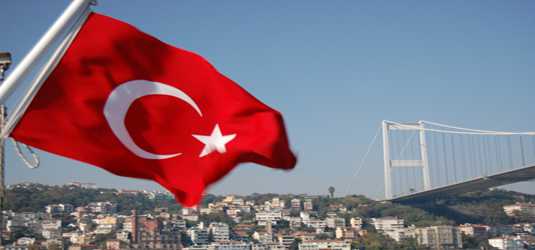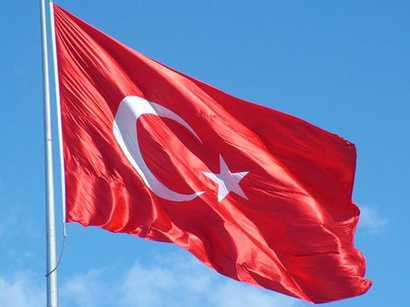Lots of young people, eager to shop and play online: no wonder Turkey’s internet industry is crowded

MUSLIM farmers do not keep pigs. This is as true of those who play at virtual agriculture as of those who fill physical food-troughs. So there are no pigs in the Arabic version of “Happy Farm”, published by Peak Games, a young firm based in Istanbul. For the same reason “Happy Farm” has no vineyards, and female farmhands wear the hijab. Local tastes matter.
Peak Games has found rich soil. It already employs 200 people and has developers in Jordan and Saudi Arabia as well as Istanbul and Ankara. More than 35m people play its games at least once a month, many of them on Facebook. Half of the players are in Turkey; the rest are in the Middle East and north Africa. Rina Onur, one of its founders, says that she and her colleagues saw a gap in the online-games market that companies catering to Western tastes could not fill. So Peak Games offers people in Turkey and nearby countries games with a regional twist, like “Happy Farm”, as well as online versions of traditional amusements. Okey, a Turkish game played with tiles, is most popular.
Turkey is bursting with internet companies, many of them selling things to the young. It is not hard to see why. The country is big, youthful and embracing the internet eagerly. Half of its 75m people are under 30. Around 44% of Turks use the internet, up from just 14% in 2006 and 3% in 2000. They comprise Facebook’s seventh-largest national audience. Turks are also happy to use credit cards, which are handy for buying things online: the country has three of them for every five people, says GP Bullhound, an investment bank, more than the European average. And the market still has a lot of room to grow. Penetration rates are well below those in western Europe (see chart).
Several companies have attracted foreign money. Peak Games has raised $20m. In September General Atlantic, an American investment firm, and others put $44m into Yemeksepeti, through which Turks order meals for delivery from local restaurants. In 2011 Naspers, a South African media company, paid $86m for 68% of Markafoni, an online fashion club; eBay raised its stake in GittiGidiyor, an auction site, to 93%, and Kleiner Perkins Caufield & Byers and Tiger Global Management, both based in America, invested $26m in Trendyol, another fashion site.
Typically, Turkish internet companies have borrowed business models from abroad and given them Turkish tweaks. Mustafa Say, whose iLab Ventures owns the other 7% of GittiGidiyor, says that buyers pay into an escrow account, from which money is sent to sellers only when goods turn up. That, he says, has helped to build trust. Yemeksepeti’s customers pay nothing extra for delivery and can pay in cash on the doorstep. This still accounts for 37% of sales, says Nevzat Aydin, a founder and its chief executive. Not only money and ideas have come from abroad. So have people: returning Turks, most of them equipped (like Mr Say and Mr Aydin) with American education and experience.
The size of the Turkish market is a “double-edged sword”, says Numan Numan, a former Goldman Sachs banker now at 212, a venture-capital firm which takes its name from the telephone code for the European side of Istanbul. Scale at home is a boon, but start-ups in smaller countries, such as Israel or Estonia, have more incentive to look beyond their borders from the outset. Of the six Turkish firms in which 212 has invested, Mr Numan expects “a minimum of four to go regional at least”.
Turkish internet firms think they have a good base from which to expand, especially into the Middle East and north Africa. Peak Games is perhaps the best example, but others also have ambitions. Because Turkish television and culture are popular in the region, endorsements by Turkish celebrities can help to sell clothes and shoes. General Atlantic’s money will partly finance Yemeksepeti’s move abroad.
Lots of others are hoping to follow the successes. In November, in a hall at Bilgi University in Istanbul, 20 young Turkish companies coached by Bootcamp Ventures, the event’s organiser, presented their plans to prospective investors.
Events like this, Bootcamp’s fifth in Turkey, have become common. “When we started here six years ago,” says Didem Altop of Endeavor, a non-profit organisation which seeks to encourage entrepreneurs in countries from Brazil to Jordan, “there used to be three events a year. Now there are three a day.”
Turkey has so far been short of “angel” investors who will sprinkle money on a seedling company without demanding most of its equity. That is changing, as the first generation of founders become investors and mentors for the next. In Galata Business Angels, Istanbul has a network of such people including Mr Numan and Sina Afra, co-founder of Markafoni. Incubators are being set up: at Enkuba, in Istanbul, Piraye Antika, a former local head of HSBC, a big bank, and her colleagues have taken on Bu Kac Para Eder, which values antiques online, and torpilli, which helps students preparing for university-entrance exams.
The government’s policies have been a bit disjointed, says Ms Altop, but are becoming more concerted. Young companies can already get grants for research and marketing; those in “technoparks” are excused some taxes. More encouraging is the prospect of tax breaks to accredited angels, which are due to come into effect soon. Most start-ups will fail, as they do everywhere: fashion and daily deals, in particular, look horribly crowded. But more of them may get the chance to emulate those already on the road to success.






